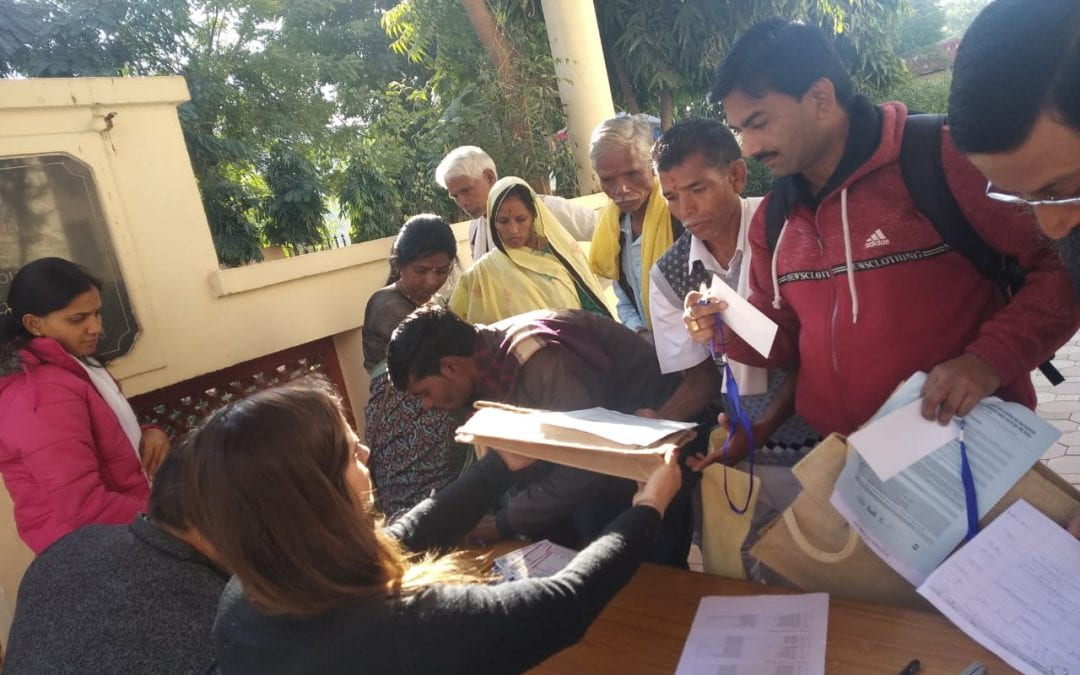 Friday, May 14, 12–1pm Food Sovereignty, Agroecology, and Climate Change in Rajasthan, India Food Studies Alum Michelle Nikfarjam Zoom – Register in advance
Friday, May 14, 12–1pm Food Sovereignty, Agroecology, and Climate Change in Rajasthan, India Food Studies Alum Michelle Nikfarjam Zoom – Register in advance
In Rajasthan, India, food insecurity is growing more pervasive as uneven socioeconomic transformations compound with climate change. This combination of forces has resulted in significant degradation in local farming knowledge, adding strain to an already precarious food system. While climate change in Rajasthan affects all farmers and their agriculture systems, small producers who belong to marginalized castes and tribes bear the brunt of its impacts. In recognition of the need for alternatives, grassroots movements and local NGOs are mobilizing around concepts of food sovereignty and agroecology as they try to re-negotiate the political, economic, and environmental process of agricultural development.
Based on four months of ethnographic fieldwork, Michelle Nikfarjam’s project explores this re-negotiation happening on the ground and how agro-ecological farming can build more socially equitable and environmentally sustainable conditions for small and marginalized producers. She highlights the specific contours of agro-ecological practice among the farmers she worked with and the implications of these practices in broader disruptions to the industrialization and financialization of agriculture in Rajasthan and globally.
She also examines the interplay of multilateral funding, government schemes and policy, and local movements and actions to understand what configurations best lead to a sustainable balance between agroecosystems and social systems. Her findings suggest that while grassroots movements have gained significant strides in fostering local solutions, farmers still face significant structural barriers in gender, caste, and class as they negotiate how interventions from the state and from local organizations are interwoven with their own concerns for stability and livelihood.
With her presentation, Michelle hopes to show the incredible work being done to bring about more sustainable and equitable agricultural systems by her partner organization, CECOEDECON, farmers’ movements, and NGOs across northern India.
 This event is cosponsored by the UO Department of Global Studies. We will gather together for informal conversation at 11:45am with the presentation at noon and a Q&A to follow.
This event is cosponsored by the UO Department of Global Studies. We will gather together for informal conversation at 11:45am with the presentation at noon and a Q&A to follow. 
Michelle Nikfarjam is a farmer-activist and scholar-in-training. She obtained her B.S. in Sustainable Food and Farming from the University of Massachusetts where she worked for three seasons as an organic production farmer and coordinated several food justice and agroecology projects in Amherst, MA. She went on to receive her M.A in International Studies from the University of Oregon where she conducted research on climate, agrarian change, food sovereignty and agroecology in India. She is now serving as an Emerson National Hunger Fellow with the Congressional Hunger Center. Starting in the fall, Michelle will join the University of Vermont’s Food Systems program as a Ph.D. student where she will continue her research in the arenas of food sovereignty and agroecology while working with farmers in the Middle East.
In her work, she believes it is important to employ decolonial and feminist political ecology frameworks approached through the intersectional relationship of class, race, gender, and the enviroment. As a scholar-activist, she is interested in how participatory action research (PAR) can be used to build farmers’ production capacities, foster more sustainable and equitable approaches to agriculture, and fully engage communities in the co-production of knowledge for food system transformation.
Photographs courtesy of Michelle Nikfarjam.

